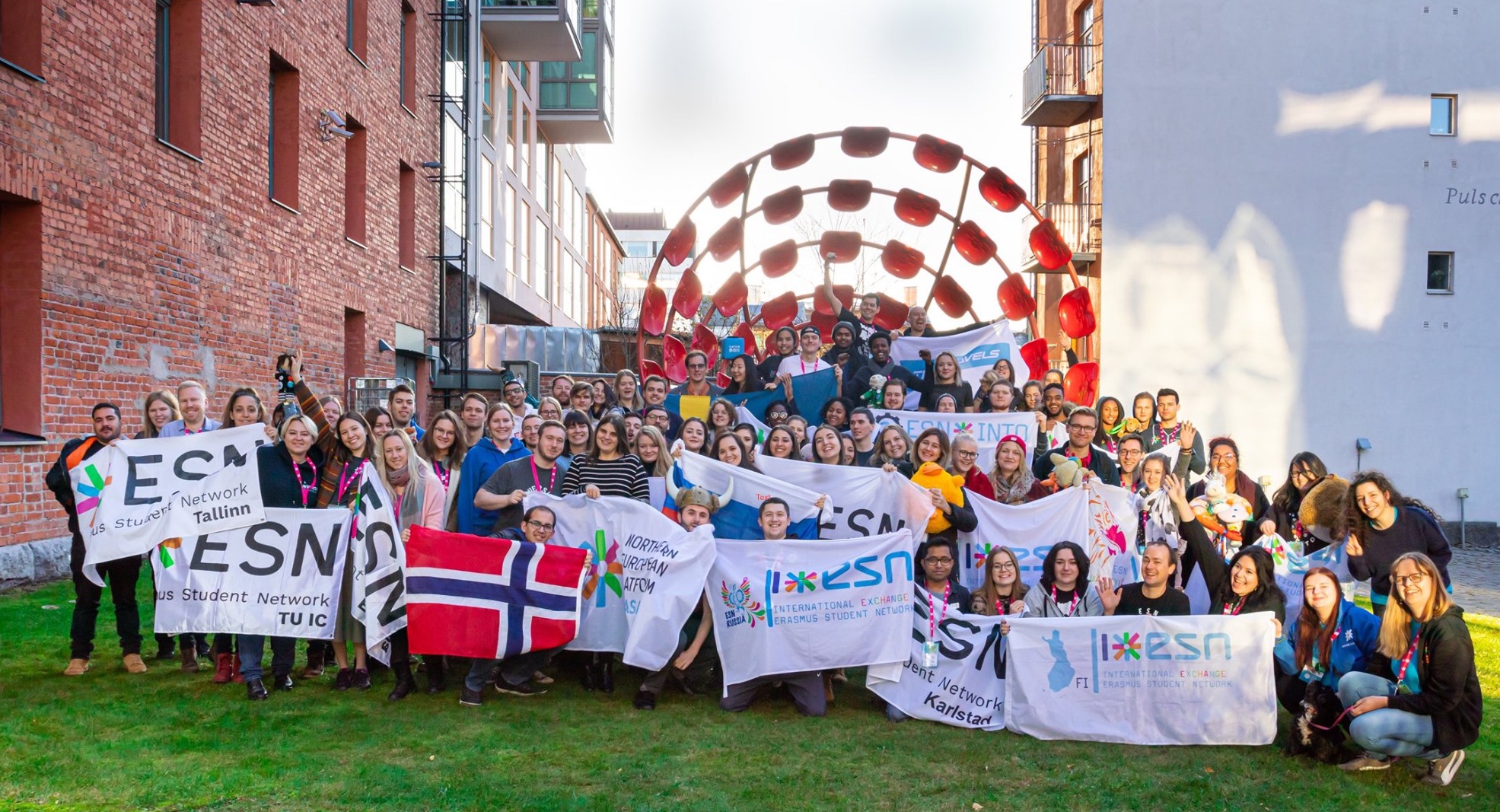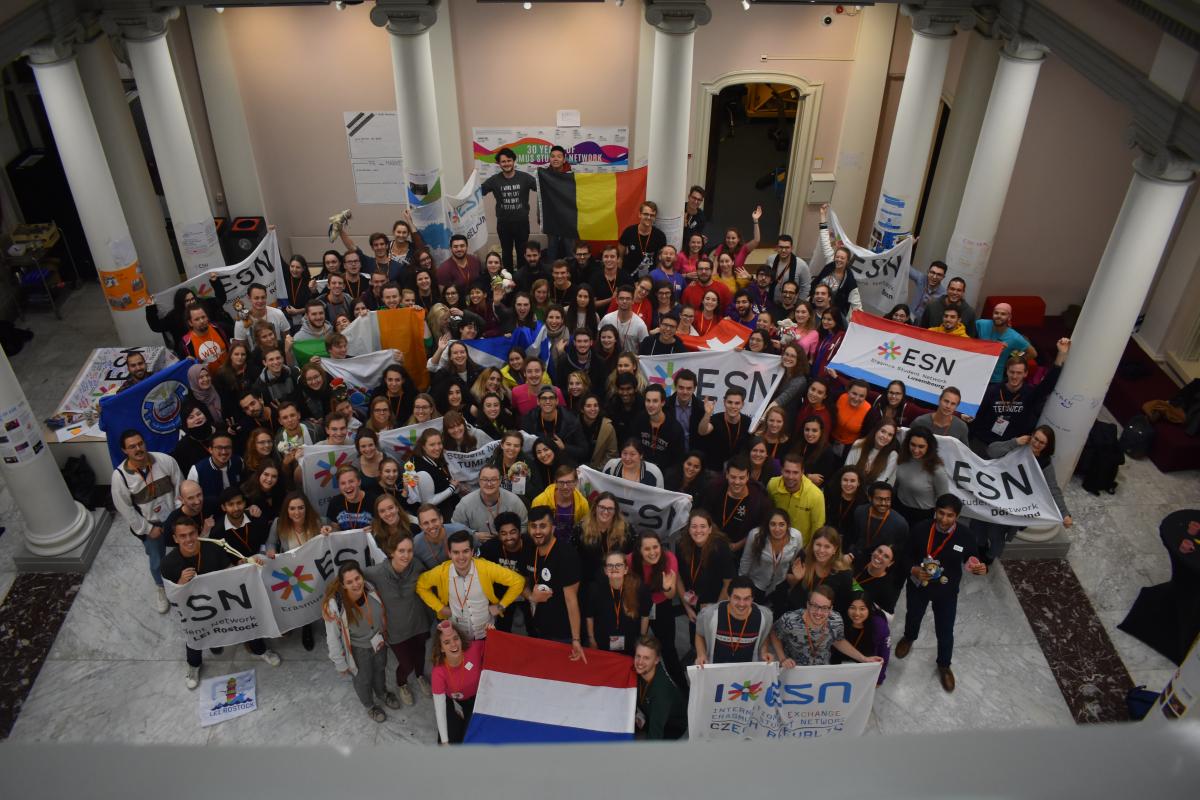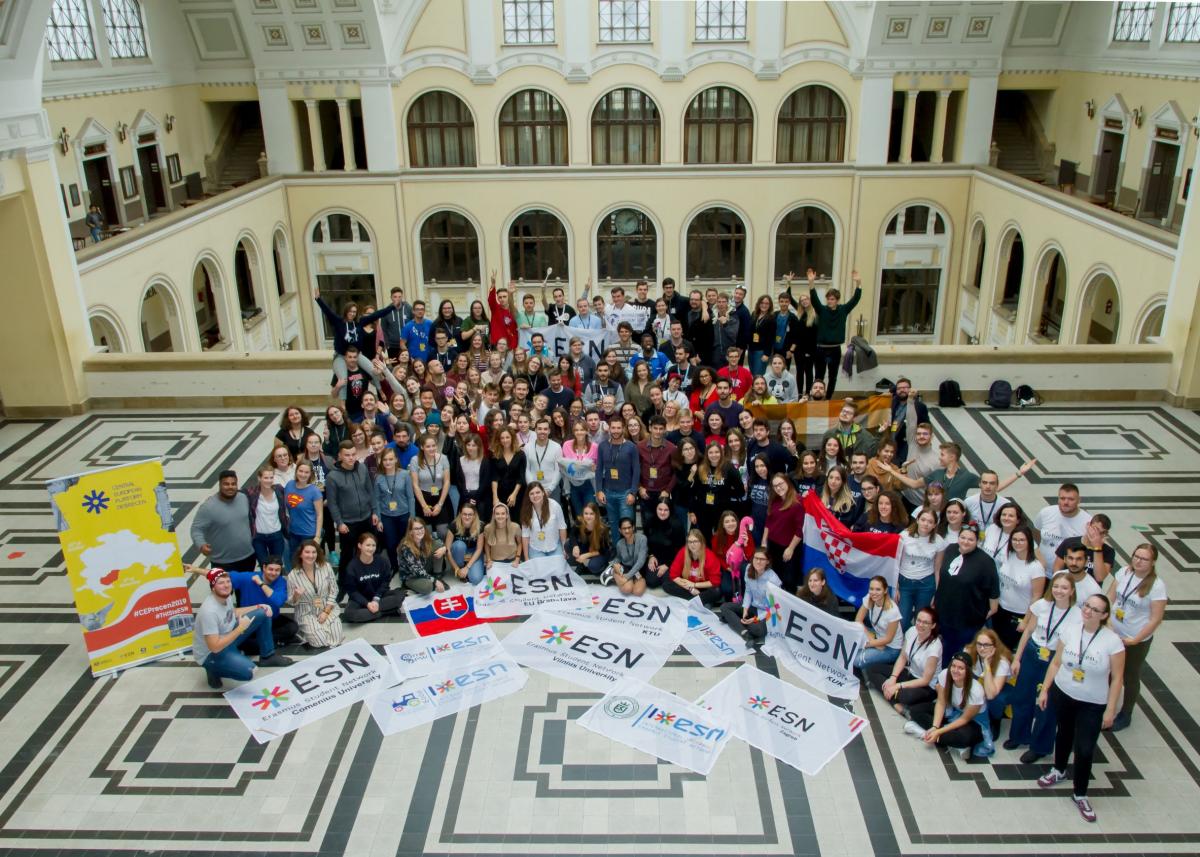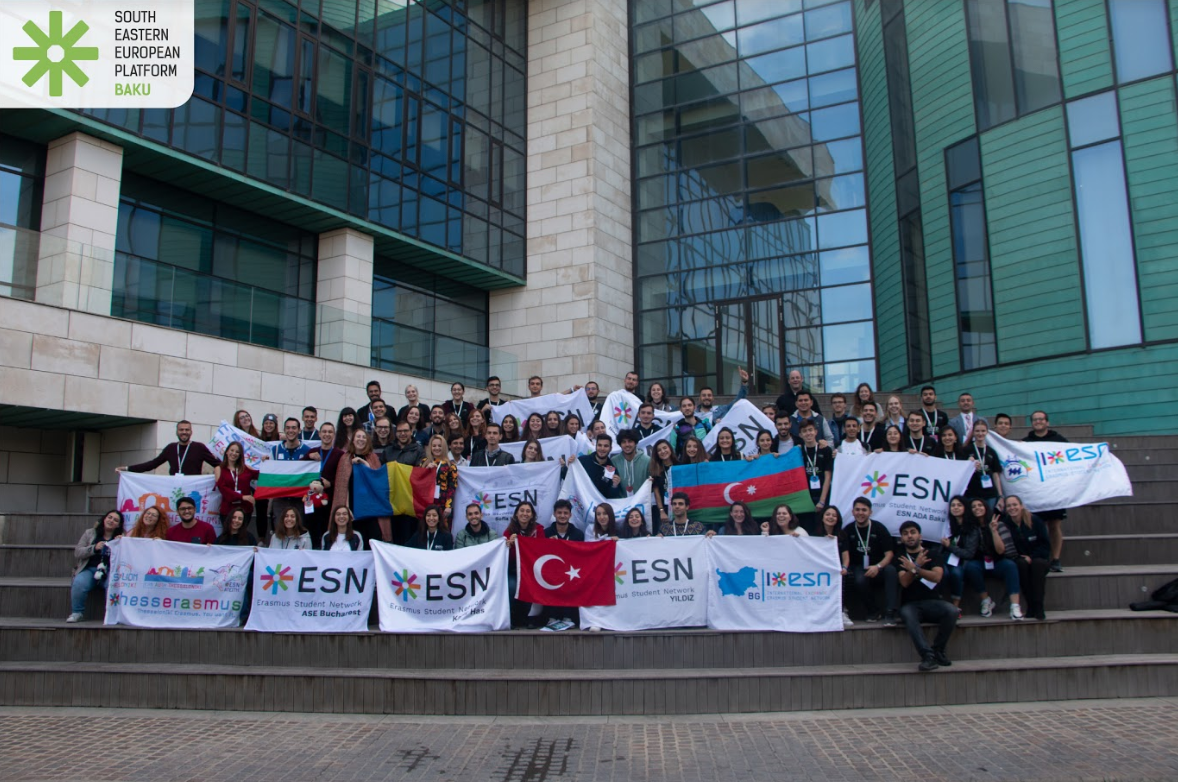
Every year, the Erasmus Student Network organises regional training events for the members of the network, providing them with the chance to meet, share knowledge and work together. This year, all five regional events took place at the same time, from the 31st of November to the 3rd of December in Utrecht, Vaasa, Baku, Malaga and Debrecen. Together they gathered almost 600 participants who had the opportunity to participate in various workshops and sessions dedicated to the new Erasmus programme, event management, social media, the employability of volunteers, the role of ESN in quality mobility, soft skills and motivation, etc.
"The regional training events are always a memorable experience for everyone involved, as well as a precious opportunity to learn. For many local volunteers, these events are their first contact with the international level, and it is extremely important that they see the diversity of the network's activities and what the network has to offer them and their section, as well as exploring their place in ESN. The opportunity to network, share ideas and exchange best practices can be a powerful tool for development if used and followed up on correctly. For those involved in the creation of the content, it is always fun to add new elements and introduce new aspects to the event, as well as inspirational to see their work unfold in front of their eyes.'' - Tajana Mohnacki, Vice-President of the Erasmus Student Network 2019/2020.
The forty-one member countries of ESN are divided into five regions: Central European Platform (CEP), Northern European Platform (NEP), South Eastern European Platform (SEEP), South Western European Platform (SWEP), and Western European Platform (WEP). All of the regional events this autumn were visited by one of the International Board members: João Vasco Oliveira, Tajana Mohnacki, Kaspars Ābelnīca, Kostis Gianidis, and Sabina Achim.
ESN Utrecht welcomed, at the Utrecht University, volunteers from the United Kingdom, Ireland, Germany, Liechtenstein, the Netherlands, Switzerland, Luxembourg, and Belgium. In the light of the 30th Anniversary of ESN, Désirée Majoor, a founding member of ESN, was invited to speak about the beginnings of our network in the city of Utrecht and how a handful of volunteers grew into a community of 15,000 people all around Europe. Moreover, Géraldine Dichamp from Pernod Richard presented the Responsible Party project and the value of the peer-to-peer approach in raising awareness about the effects of alcohol consumption between students.

ESN Malaga gathered participants from France, Italy, Spain, Portugal, and Malta at the Faculty of Economics of the University of Malaga, where Prof. Francisco Chicano welcomed the participants together with the Assistant Vice Chancellor for Mobility, Guillermo Sánchez. Joining the welcome speech was Juan Rayón (President of ESN Spain) and Yannis Virvilis (Press Officer of the European Commission representation in Spain). The SWEP region represents almost 25% of the total of ESN local organisations and almost 50% of the total amount of ESNcard memberships. The region illustrates a lot of diversity when it comes to the local organisations, ranging from big organisations engaging with more than 2000 international students to multiple small organisations with no more than 100 students as their subject of attention. France is the top sender of Erasmus students, while Spain is the country receiving the highest number of Erasmus students.

Volunteers from Austria, Czech Republic, Belarus, Slovakia, Poland, Hungary, Slovenia, Lithuania, Ukraine and Croatia came together in Debrecen, where they were welcomed by ESN Debrecen at the University of Debrecen. ESN Vaasa and the City of Vaasa welcomed the ESN volunteers from Sweden, Norway, Denmark, Finland,, Estonia, Latvia, and Russia in the Åbo Akademi University Vaasa.

ESN Azerbaijan welcomed the volunteers from Bosnia and Herzegovina, Bulgaria, Cyprus, Greece, Georgia, Azerbaijan, Romania, Serbia, and Turkey in ADA University in Baku where Fariz Ismailzade, the Executive Vice-Rector of ADA University, welcomed the guests and informed them about the positive approach of ADA University in supporting inspirational initiatives proposed by students. He also emphasised the importance of international cooperation between the countries of the region.
"The local hospitality was one of the most amazing experiences! The organising team worked really hard for the South-Eastern European Platform in Baku and offered every single participant an unforgettable experience. It was a fruitful and motivating event with great volunteers ." - Anna Demiri, Regional Coordinator of ESN

For the first time, the regional training events were open to students from the Middle-East and North-Africa region. Thirteen students from Jordan, Israel, Palestine, and Tunisia took part in the five events. This became a reality with the support from UNIMED and their member HEIs, as well as from the Israeli HEIs part of the WILLIAM project, which spread the call for the MENA participants among their students. ESN has signed memoranda of understanding with organisations active in both the EU neighbourhood and the EU: the Mediterranean Universities Union (UNIMED), the Union for the Mediterranean (UfM) and the Eurasian Universities Union (EURAS). ESN is also involved in the WILLIAM project, a capacity-building project for higher education focusing on internationalisation at home, together with Israeli HEIs.
The regions of ESN are not just supported by a one-time event, they are systems that ensure quality and support for the member countries and the local organisations of ESN and in 2019 they were coordinated by Regional Coordinators: Anna Demiri, Kyriakos Kalantaridis (SEEP), Déborah Thiry, Margarita Kuvaldina (WEP), Nour El Kholy, Richard Greco (SWEP), Kit Schofield, Jens Bulinckx (NEP), and Joyce Zýková, Tereza Kadlecová (CEP). The main aim of the regional training events is for our volunteers to see the diversity of our network and the work we do under the six main fields of our organisation, as well as facilitating the sharing of good practices and the beginning of new collaborations on projects within the local organisations of the region.

Follow ESN